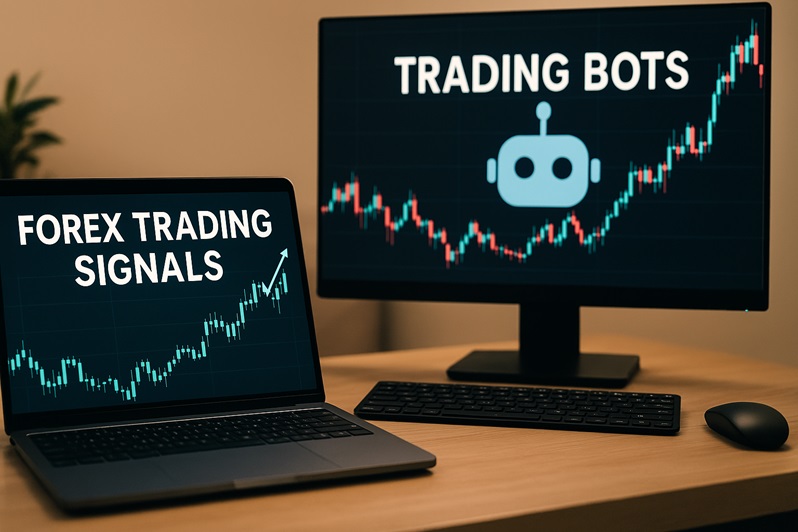
In the evolving world of Forex trading, both trading signals and automated bots have become popular tools for maximizing efficiency and profitability. While both serve the same ultimate goal—to help traders make informed decisions—their approaches and underlying mechanisms differ significantly. For traders looking to enhance their strategy, understanding the strengths and limitations of each is essential. So, which is more effective: Forex trading signals or trading bots?
What Are Forex Trading Signals?
Forex trading signals are alerts generated by professional traders, analysts, or algorithmic systems. These signals indicate potential trading opportunities based on market conditions and can include details like entry price, stop-loss, and take-profit levels. Signals can be shared via platforms like Telegram, email, or integrated trading apps.
The strength of trading signals lies in human expertise. Many signal providers incorporate a mix of technical and fundamental analysis, delivering curated insights to subscribers. This approach can save time, especially for beginners, and offers a learning experience by observing how seasoned traders read the market. However, the effectiveness depends heavily on the quality and transparency of the signal provider.
How Do Trading Bots Work?
Trading bots are software programs that execute trades automatically based on predefined algorithms. These bots analyze market data in real-time and can operate 24/7 without human intervention. They are particularly effective in high-frequency trading, scalping, and reacting to rapid market changes.
Bots offer unmatched speed and consistency. Unlike humans, bots don’t suffer from emotional bias or fatigue, allowing them to stick strictly to the rules. However, they also lack adaptability and context awareness. Bots follow code, which means that unexpected news events or shifting market sentiment can disrupt performance if the bot isn’t designed to react accordingly.
Customization and backtesting are key advantages of bots. Traders can fine-tune parameters and test performance over historical data before deploying in live environments. This makes bots appealing for tech-savvy traders who prefer a hands-off, data-driven approach.
Comparing Effectiveness and Suitability
Effectiveness depends on context. For discretionary traders who value market commentary and want flexible insights, trading signals may be more suitable. They provide a human touch, the ability to assess nuance, and are easier to follow without technical coding skills.
Trading bots, on the other hand, are ideal for those who trust quantitative models and want to eliminate emotional errors. Bots can execute dozens of trades per day with speed and precision, making them powerful for strategies that require tight timing and risk control.
Ultimately, combining both tools may offer the best of both worlds. A trader might use signals for directional bias and confirmation, while relying on bots for precise execution or specific conditions. The synergy between human insight and algorithmic speed can significantly enhance a trading edge.
Conclusion
Forex trading signals and bots each offer unique advantages, and their effectiveness depends largely on the trader’s style, experience, and goals. Signals provide flexibility and insight backed by human expertise, while bots deliver automation and speed without emotional interference. Rather than choosing one over the other, many successful traders use both strategically to maximize performance and stay competitive in today’s fast-moving markets.
FAQs
Are trading signals suitable for beginners?
Yes, they offer guidance and help beginners learn how experienced traders approach the market.
Do I need programming skills to use trading bots?
Not necessarily. Many platforms offer pre-built bots or user-friendly interfaces for configuration.
Which is more profitable: bots or signals?
Profitability varies by provider, strategy, and market conditions. Both can be effective with proper use.
Can I use both trading signals and bots together?
Yes, many traders combine them to enhance decision-making and automate repetitive tasks.
Are trading bots legal in Forex?
Yes, as long as they operate within the terms of your broker and local regulations.
